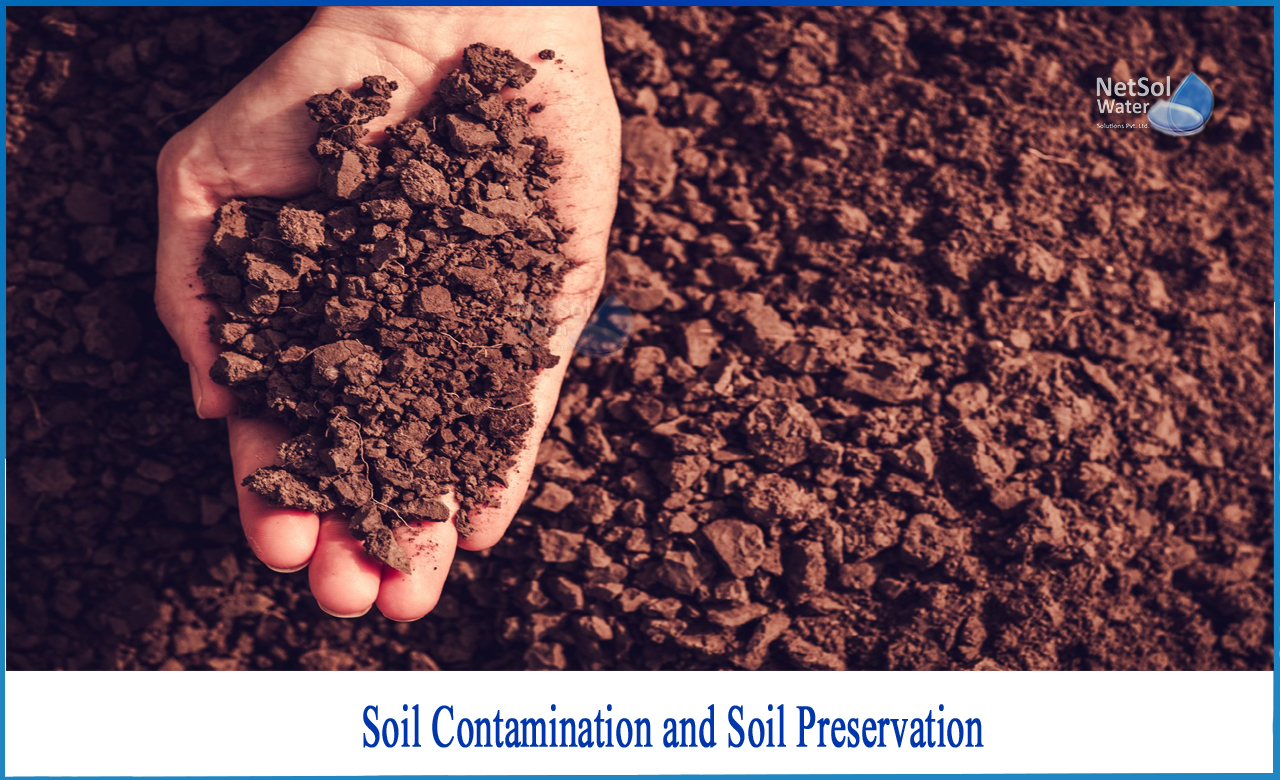Overview
When we talk about pollution, we tend to focus on the sky, but the problem isn't limited to our skies. The soil in which our fruits and vegetables grow is also affected, with the repercussions reaching us directly, for example, through the meals.
It's past time to take care of what's beneath our feet!
The soil is the earth's skin, a mantle riddled with scars, thousand-year-old wrinkles, and more recent wounds created by both man and nature. Some of these sores are irreversible, such as species extinction.
What is the cause of soil pollution and its types?
When the concentration of contaminants on the surface rises to the point where they affect land biodiversity and jeopardise human health, notably through food, this invisible ailment emerges. Chemicals, insecticides, and fertilisers are used in activities like animal breeding and intensive farming, which damage the soil, much as heavy metals and other natural and man-made chemical compounds do.
According to the Food and Agricultural Organization of the United Nations, soil contamination is a global concern that is particularly severe in regions such as Europe, Eurasia, Asia, and North Africa (FAO). It is claimed that, one-third of the world's soil is already degraded, either severely or moderately. Furthermore, recuperation is so sluggish that it would take 1,000 years to build a one-centimetre-thick soil layer.
Soil pollution: Causes and types
The principal causes of modern soil degradation include erosion, loss of organic carbon, increasing salt content, compacting, acidification, and chemical contamination.
Specific pollution: caused by specific causes, occurring in small areas, and with easily identifiable causes. This type of contamination is commonly found in cities, abandoned industry sites, along highways, illicit dumping, and sewage treatment plants.
Widespread pollution: It is a problem that affects a large area and has a number of causes that are difficult to pinpoint. These types of cases involve the spread of contaminants across air-ground-water systems, which has major consequences for human health and the environment.
Industry, mining, military activities, trash — including technical waste — and wastewater management, farming, animal breeding, and the construction of urban and transportation infrastructures are among the most prominent causes of soil contamination induced by human activity.
Soil pollution consequences
Toxic compounds deposited on the earth's surface have a negative impact on human health and well-being, as well as the quality of our food, water, and air, the following are the most significant effects of soil pollution:
1: Resultant health problems
Soil toxins reach our bodies via the food chain, resulting in sickness. Furthermore, the environmental dissemination of antibiotics enhances bacterial resistance to these treatments.
2: Harvests that are less than ideal
By lowering the quantity and quality of harvests, soil pollution agents jeopardise global food security.
3: Changes in the climate
Soil degradation contributed between 3.6 and 4.4 billion tonnes of CO2 into the atmosphere in the first decade of the twenty-first century.
4: Pollution of the water and air
Soil deterioration has an impact on air and water quality, especially in poor countries.
5: Displacement of people
By 2050, soil degradation and climate change will have displaced between 50 and 700 million people.
6: Extinction of species
Soil contamination is one of the key factors that could lead to the sixth mass extinction event in history, with the population of terrestrial vertebrates dropping by 38% between 1970 and 2012.
7: Desertification
In 2050, the population of the world's most arid regions could account for 45 percent of the global population, while global wetland areas have shrunk by 87 percent over the last three centuries.
8: Impact on the economy
Soil deterioration is predicted to cost the global economy more than 10% of its annual output.
Reduce soil pollution: Solutions
Soil deterioration is a complicated issue that necessitates collaborative efforts from governments, institutions, communities, and individuals.
Some of the things we can do to improve its health are as follows:
>Consume sustainable foods, correctly recycle batteries, make homemade compost, and dispose of medications in designated areas.
>Encourage, among other things, a more environmentally sustainable model for industry, farming, and stock breeding.
>Improve urban and transportation planning, as well as waste water treatment.
>Improve mining waste management, landscape restoration, and topsoil conservation.
>Local communities and indigenous peoples should be involved in the planning, implementation, and evaluation of sustainable land and soil management.
Netsol Water is Greater Noida-based leading water & wastewater treatment plant manufacturer. We are industry's most demanding company based on client review and work quality. We are known as best commercial RO plant manufacturers, industrial RO plant manufacturer, sewage treatment plant manufacturer, Water Softener Plant Manufacturers and effluent treatment plant manufacturers. Apart from this 24x7 customer support is our USP. Call on +91-9650608473, or write us at enquiry@netsolwater.com for any support, inquiry or product-purchase related query.



